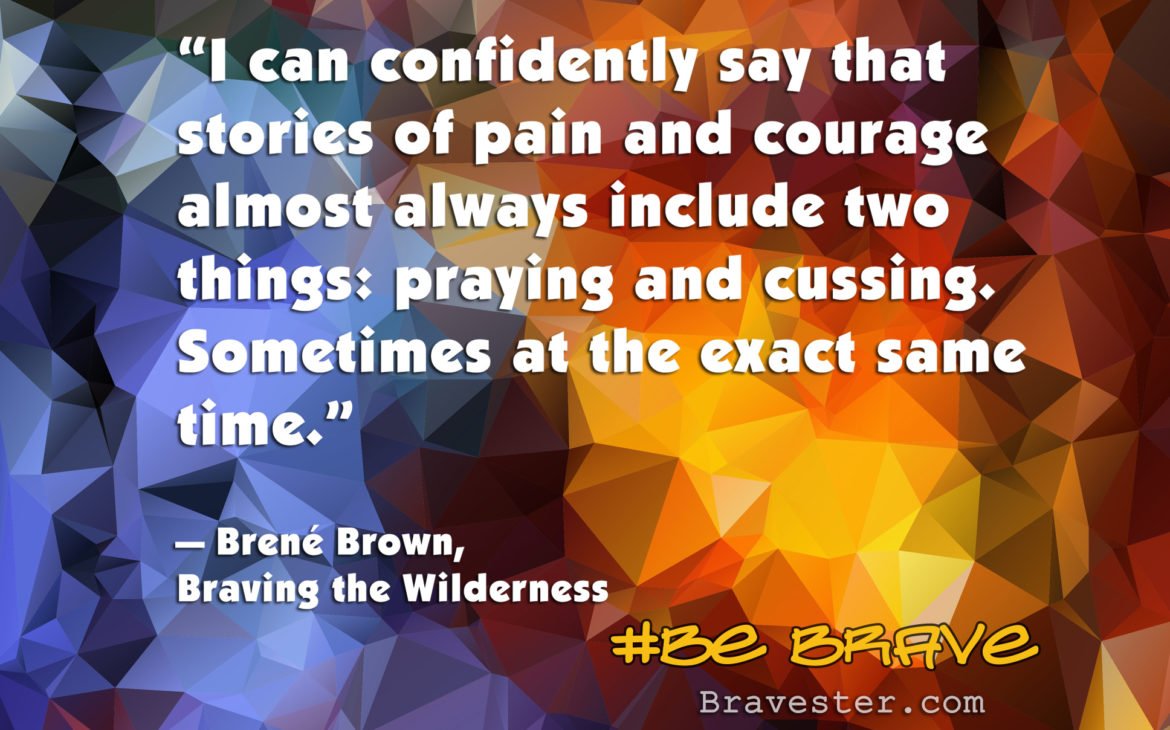Praying with Your Trust Issues

#thebravepray but you still have trust issues when it comes to prayer.
Prayer isn’t hard. The belief in prayer is hard. It triggers our trust issues.
We don’t trust the government. We don’t trust institutions. We don’t trust God.
I have a grown teen in my life who believes prayer is like that wheel on Wheel of Fortune. To pray you spin that wheel. But her wheel has 7/8 of it with a “no” and only one spot for a yes. Does that feel like prayer for you?
One of the reasons to not try prayer is due to a lack of tangible results.
Since prayer is often seen as a communication with a higher power or deity, individuals may expect their prayers to be answered in a specific way or to bring about desired outcomes. When these expectations are not met, it can lead to doubts and a loss of trust in prayer.
We don’t trust prayer because of inconsistent or contradictory outcomes.
You may have witnessed instances where prayers seemingly went unanswered or where different individuals praying for the same thing received different results. These inconsistencies can raise doubts about the efficacy and reliability of prayer.
We don’t try prayer because of a lack of scientific evidence.
Many individuals place their trust in empirical evidence and scientific methods. Since prayer is often considered a spiritual or religious practice, it may not have the same kind of scientific evidence backing its effectiveness as other approaches. This absence of scientific validation can contribute to doubts and skepticism about prayer. (Read the book, When I Pray, What Does God Do? by David Wilkinson. He is a scientist and pastor who answers this question with the scientific method.)
We don’t pray because prayer is a dependency on a Savior who isn’t us.
Some individuals may prefer to rely on their own actions and efforts rather than relying on prayer. You may feel that taking direct action is more effective and within your control, while prayer is seen as a passive or uncertain approach. This desire for personal agency can diminish trust in prayer as a reliable means of achieving desired outcomes.
Some people don’t pray because they believe it is wishful or magical thinking.
Prayer is sometimes perceived as a form of wishful thinking or a psychological coping mechanism rather than a genuine means of communication with a personal God. Skeptics may argue that prayer provides a sense of comfort or psychological relief to individuals, but it does not actually influence external events or bring about real change.
Cynicism is a scar tissue that keeps us from prayer.
We don’t speak about the heartfelt prayer that goes unanswered. We keep our doubts hidden even from ourselves because we don’t want to sound like bad Christians. We don’t want to add shame to our cynicism. So our hearts shut down.
Have you ever let doubt creep in believing that you didn’t pray enough so the outcome is your fault? Do you believe that if you clap enough and say “I believe in fairies” that Tinkerbell will live?
Faith is not produced by some kind of bargain with God. It is relational. Trust issues trigger our relationship with God.
Trust issues trigger vulnerability. Prayer tweaks our vulnerability. After all prayer is an act of dependence.
This is one of my favorite Dr. Brene’ Brown quotes (and I tend to quote her a lot.)
“I’ve spent my entire career sitting across from people, listening to them tell me about the hardest and most painful moments of their lives. After fifteen years of this work, I can confidently say that stories of pain and courage almost always include two things: praying and cussing. Sometimes at the exact same time.
–Brene’ Brown, Braving the Wilderness, pp. 24-25

Out of that vulnerability sometimes all you can do is cuss. Praying and cussing at the same time.
I’m okay with this. And I believe God is too. God is not shocked by you. Pray on.
Because of your vulnerability, do you pad your prayers with insincere pats on the back for God before you tell God why you are really praying? Sometimes the prayer formulas we’ve been given have triggered attachment wounds.
To explain this better I share this story from author Amanda Anderson, whom I follow. This is about her time in a horse lesson.
“When he finally held still, instead of getting down to business (which was cleaning his hoof with a pick), I tried to make friends by petting him, even though I was pretty irritated with him at this point.
“The horse guru came up and questioned me:
“Guru: What are you doing?
“Me: Petting Merlin.
“Guru: Why?
“Me: Uh. I’m making friends with him. I want him to like me.
“Guru: Why?
“Me: Uh. I don’t want him to think I just want something from him.
“Guru: But you do want something from him. You want his hoof.
“Me: Ok.
“Guru: Do you always need people to like you before you can ask for something you need?
“Me: Uh. Yes.
“My time with Merlin revealed some of my anxious attachment wounds. It revealed a manipulative side of me that tried to be nice rather than direct. I believed that before I could get my needs or wants met, I had to prove my worthiness through people pleasing. And also, through pleasing God.” https://www.amandaandersonwriter.com/post/healing-prayer-perfection-paralysis
Ummm…is this you? I’m not talking about the good prayer practice of including gratitude in your prayers. If this is you, you know it. Some of you resort to prayer formulas out of desperation, broken attachment issues, disappointment with God. Trust issue revealed.
When you pray for big things, are you really praying for an eraser? Are you praying for things to go back to the way they were before?
Prayer is not an escape from reality but it is the deepest place of reality.
Prayer is how we enter into our lives and live in honesty.
Through prayer I am also entering into the cosmic reality. There are forces at play here that are not human and not for me.
Prayer unlocks tears and hidden sorrows. Because relationships require tears. Prayer is all about our relationship with God. No wonder we don’t like prayer. There is that vulnerability again. Trust issue revealed.

How do you keep praying when you want to give up? When there is too much pain? When it seems like nothing is changing? When the opposite of what you prayed for happens? When in those moments when you feel very distant from God. When you bang down the door of heaven for years and are not sure anything is going on up there at all?
We are part of a larger story. Our inheritance of this larger story is of overcomers. We can remember the old stories. We can remember the new stories.
There are 550 references to remembering in the Bible.
There is the one verse which is easy to memorize (even I can.)
Give all your worries and cares to God for he cares for you.
1 Peter 5:7
This verse is more beautiful from the First Nations version:
The Great Spirit cares deeply about you, so gather all your worries into a basket and throw them on his shoulders. He will carry them for you.
1 Peter 5:7
I vulnerably pray to put all those worries into God’s basket (angrily at times) who puts them upon his shoulders. I have learned over time that God does carry them.
This is a knowing that time and people have taught me.
Are your trust issues leading your life a bit too much? I have created a Bible study with video teaching about those trust issues which will take you all over the Bible. You will be studying over 125 verses. Perhaps you may find some hope. Order your copy. Bulk orders available too.







Comments
Trackbacks & Pingbacks
[…] The words only get better. Especially for those of us who pray with trust issues. […]